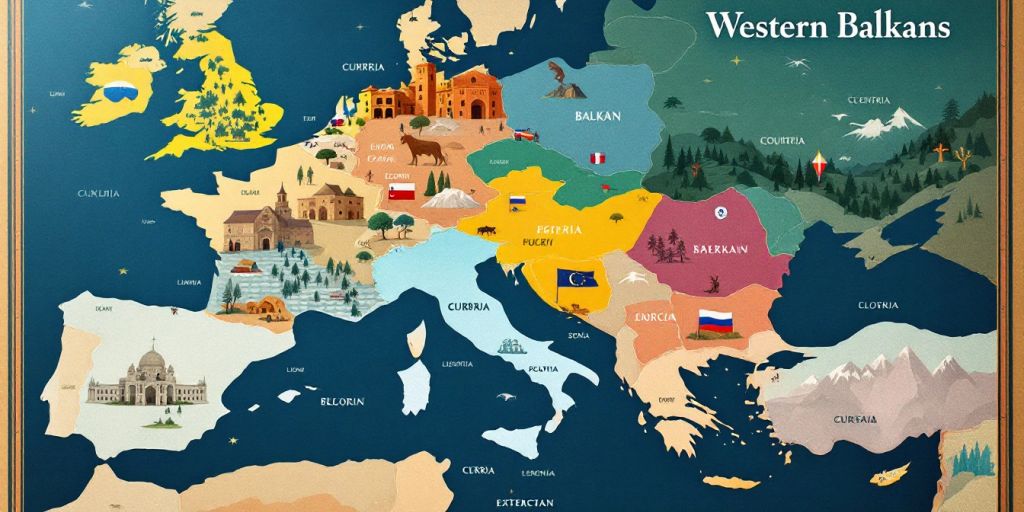The integration of the Western Balkans into the European Union (EU) has become a pressing geopolitical issue, especially in light of recent political developments in the United States. As the region grapples with the influence of Russia and the potential return of Donald Trump to the White House, the future of EU expansion hangs in the balance.
Key Takeaways
- The Western Balkans face increasing Russian influence amid stalled EU integration.
- A potential Trump presidency could shift U.S. policy, favoring Serbian interests.
- Regional leaders are concerned about the implications of a less engaged U.S. in Balkan affairs.
The Urgency of EU Integration
The EU has historically viewed the integration of the Western Balkans as a means to stabilize the region and counteract external influences, particularly from Russia. Ursula von der Leyen, President of the European Commission, has emphasized the urgency of completing the integration process, citing the geopolitical risks posed by Russia’s actions in Ukraine and its growing influence in the Balkans.
The EU’s commitment to expansion is now more critical than ever, as the region’s political landscape is increasingly shaped by pro-Russian parties. Countries like Serbia, North Macedonia, and Bosnia and Herzegovina have seen a rise in nationalist sentiments, which are often fueled by external actors seeking to undermine EU unity.
The Role of the United States
The upcoming U.S. presidential election adds another layer of complexity to the situation. Analysts warn that a return of Donald Trump to the presidency could lead to a significant shift in U.S. foreign policy towards the Balkans. During his first term, Trump’s administration was characterized by a hands-on approach, particularly through his envoy Richard Grenell, who sought to broker deals between Serbia and Kosovo.
A Trump administration might abandon the current balancing act that the Biden administration has attempted, potentially favoring Serbian interests over regional stability. This shift could embolden nationalist leaders like Serbia’s Aleksandar Vucic and Bosnia’s Milorad Dodik, who have expressed optimism about a more favorable U.S. stance under Trump.
Potential Consequences of a Trump Presidency
- Empowerment of Nationalists: A Trump victory could empower nationalist leaders in the Balkans, leading to increased tensions, particularly between Serbia and Kosovo.
- Shift in U.S. Policy: The U.S. may move from a neutral stance to one that actively promotes Serbian interests, undermining the EU’s efforts to stabilize the region.
- Increased Russian Influence: A disengaged U.S. could allow Russia to further entrench its influence in the Balkans, complicating EU integration efforts.
The Need for a Proactive EU Response
In light of these developments, the EU must prepare for a potential shift in U.S. policy. Analysts recommend that European leaders adopt a more proactive stance in the Balkans, independent of U.S. support. This could involve implementing deterrence measures to counteract the influence of nationalist leaders and ensure that the integration process remains on track.
The EU’s ability to navigate these challenges will be crucial in determining the future stability of the Western Balkans. As the region stands at a crossroads, the interplay between local politics, external influences, and the aspirations for EU membership will shape its trajectory in the coming years.






